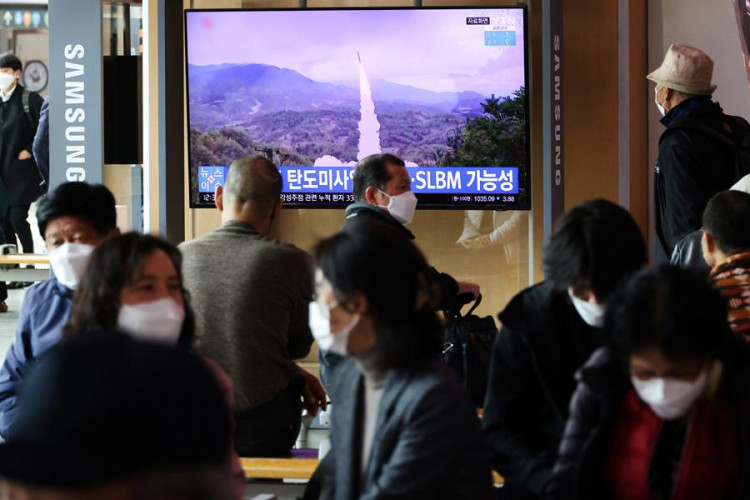In what appears to be a step up from prior missile tests by Kim Jong-un's regime, North Korea is said to have launched a ballistic missile over northern Japan, leading the authorities to advise citizens to seek cover from falling debris.
According to the Japanese news agency Kyodo, shortly before 8 a.m. on Tuesday, the government issued the alarm to citizens of Hokkaido, the country's northernmost main island, and the country's northeastern Aomori region.
"North Korea's series of actions, including its repeated ballistic missile launches, threatens the peace and security of Japan, the region, and the international community, and poses a serious challenge to the entire international community, including Japan," Japan's top government spokesperson Hirokazu Matsuno said.
Shortly after, Prime Minister Fumio Kishida labeled North Korea's conduct "barbaric" in a press conference and promised that the government will keep compiling and analyzing data.
There was no instant confirmation on the type of missile or how high or far it traveled. It appears that the North has launched a missile over Japanese land for the first time since 2017. According to sources in the Japanese defense ministry, the missile fired on Tuesday flew over Japanese land before heading eastward across the Japan Sea, also known as the East Sea in Korea. It claimed that the missile had already touched down outside of Japanese territorial waters but gave no further information. No injuries were mentioned.
The most recent launch was Pyongyang's fifth in ten days, and it came as the US, South Korea, and Japan's navies all participated in trilateral anti-submarine drills last week. Although Pyongyang accuses the allies of staging an invasion, the allies maintain that the drills are solely defensive.
The most recent launches, according to Leif-Eric Easley, a professor at Ewha University in Seoul, could be a practice run for testing using bigger missiles. "By now, North Korea's short-range missile tests suffer diminishing returns in terms of technical advancement, domestic political value, and international signaling. Diplomacy isn't dead, but talks aren't about to resume either," he said.
"Pyongyang is still in the middle of a provocation and testing cycle and is likely waiting until after China's mid-October Communist party congress to conduct a more militarily significant test."
East Japan Railway Co. suspended its train service in the northern regions as a result of the test, according to Japanese broadcaster NHK.
According to South Korean Lawmakers last week, the North has finished its nuclear test preparations and may conduct it between this month's Communist Party Congress in China and the November midterm elections in the U.S.






